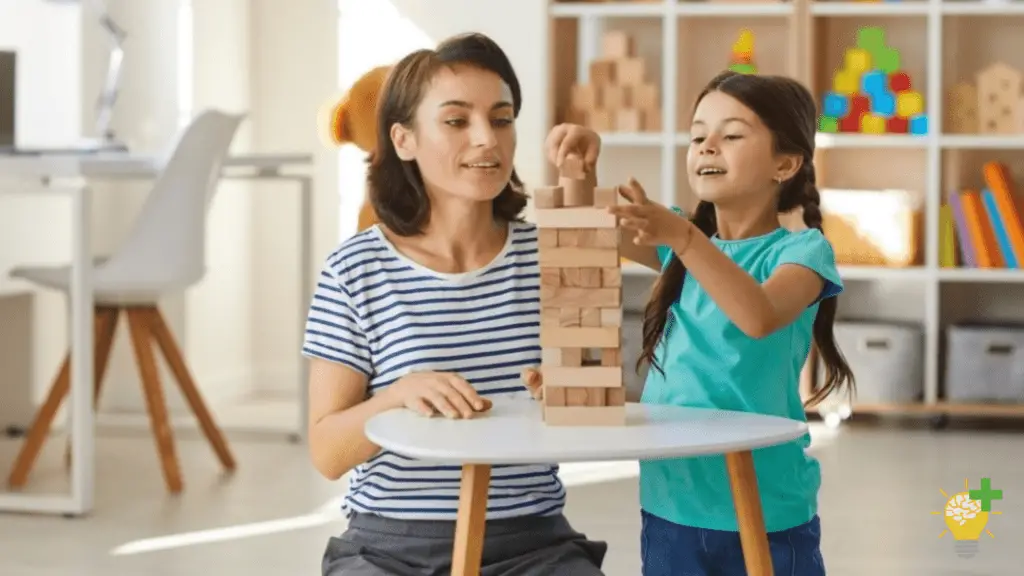A parenting coordinator is a third party assigned to carry out a court-mandated parental agreement or order in family law. They are not allowed to change or create parenting arrangements. They are only there to resolve disputes about your parental agreement and how it should be implemented.
Their role is to minimize conflict between parents and improve your communication skills as parents by mediating disputes regarding existing parental plans. They also help you reduce court case backlog and parental frustration.
If you are involved in a high-conflict custody case, a parenting coordinator can help you reduce the time and money spent in court fighting. You can meet a parenting coordinator to help you follow parts of your court order, family arbitration award, or separation agreement that involves parenting.
Using a parenting coordinator is voluntary. You need to agree to the process, and you cannot be forced.
Parenting coordinators are trained individuals that come from legal, mental health, or social work background. They are well equipped with the necessary experience and knowledge to work with separated families. They are neutral and unbiased third parties focusing on what is best for your child.
A parenting coordinator cannot decide on major issues such as decision-making responsibility or parenting time (custody and access). But they can help you decide on issues like:
- A small change to your parenting access plans like vacations and holidays.
- Your parenting schedule for pick up and drop off to activities such as dancing classes, sports, and tutoring.
- Your children’s travel and passport arrangements.
- How do you move your children’s clothing and school items between you and your partner’s residence?
A parenting coordinator helps you communicate with your partner and agree on issues and parental conflict. If an agreement can’t be achieved, the parenting coordinator can decide on your behalf. Their decision arrives through information obtained from you and your partner as parents, professionals like doctors, teachers, counselors, and your child on some special occasions.
The process of parenting coordination is a bit similar to mediation-arbitration. However, the parenting coordinator can’t make major decisions. They are mainly tasked with assisting you and your partner in the following parts of court, family arbitration award or separation agreement regarding parenting. A parenting coordinator should be trained to:
- Understand the needs of your child
- Assist you and your partner agree on parenting issues
- Assist you in keeping your children out of conflict
Some social workers and mental health professionals can be trained and work as parenting coordinators.
If a parenting coordinator decides on your behalf, it is called a secondary arbitration. In this type of arbitration, the parenting coordinator is not mandated to follow all the rules a typical family arbitration follows.
A good example is that you can appoint a parenting coordinator in advance before a problem occurs. It is allowed in secondary arbitration but not in family arbitration.
It is also not mandatory to have independent legal advice since you already have a court order, family arbitration award, or separation agreement before you engage a parenting coordinator.
However, it is recommended you consult a lawyer. Most parenting coordinators prefer working with you if you have independent legal advice from a lawyer. Your lawyer normally does not accompany you to parenting coordination, but they can offer to advise on:
- How the law is connected to your situation
- Who is the best parenting coordinator for you
- Your parenting coordination agreement
There are rules followed by qualified and court-appointed parenting coordinators that govern their operation.
Competence
Parenting coordinators have to acquire and maintain professional competence in parenting coordination. They also have to participate in educational activities that improve them professionally.
They also have to withdraw from their role in parenting coordination if circumstances arise that impair their parenting coordinator’s competence.
As a parenting coordinator, you need to turn down an appointment or request assistance if the case you are dealing with is above your skillset or experience.
You must also be familiar with current statutes, court rules, and administrative orders relevant to the parenting coordination process.
Integrity
Before accepting an appointment as a parenting coordinator, you need to make sure you have no prior personal, professional, or business relationship with the parties or any of their family members. You should also not enter into any personal, professional, or business relationship with any of the parties or their family members while still in the process of parenting coordination.
You should not let your values, morals, or religious beliefs undermine or influence the parenting coordination process or your efforts to assist the parents and children. If your personal, moral, or religious beliefs affect your duties as a parenting coordinator, you need to decline the appointment.
Impartiality
As a parenting coordinator, you need to be impartial during the whole process. It means freedom from favoritism or bias in word, action, and appearance.
You should also advise all parties of circumstances that can impact your impartiality, including but not limited to conflicts of interest bearing on the possible bias, prejudice, or impartiality.
It is not acceptable for you to give, accept or request a gift, favor, loan, or other valuable items to or from a party, attorney, or any person involved in and arising from any parenting coordination process.
The parenting coordinator has the following duties:
Implementing Plans
Both parents have to agree on a parenting plan. The parenting coordinator is tasked with creating and putting the plan into practice. The coordinator will develop a structure acceptable to you and your partner. The structures include visitation time, how the interaction will occur, where to educate your child, and who pays for your child’s needs.
When devising a plan, the coordinator and the parents decide whether external intervention is important. Such interventions include child psychologists and other professionals. The coordinator also documents all meetings, decisions, and plans you and your partner arrived at.
Providing Resources
The parenting coordinator has access to outside help, which the family might need to sort out parenting issues. The parenting coordinator provides you with any needed guidance. Your child might have a learning disability or chronic health condition that can strain your family. The coordinator can direct you to organizations experienced in dealing with such issues.
The parenting coordinator offers other resources, such as proper co-parenting techniques or activities you and your partner can participate in with your child.
Facilitate Communication
The parenting coordinator can help you and your partner communicate your preferences and needs concerning your child to promote understanding. The coordinator is there as a neutral third party to help calm emotions when they run high and ensure that you communicate with your partner in a constructive rather than offensive manner.
Sometimes the coordinator uses psychological techniques and teaches interpersonal skills to facilitate effective, respectful communication between you and your partner.
Resolve Conflicts
In cases where you and your partner can not see eye to eye, it is the responsibility of the parenting coordinator to identify the source of conflict and resolve it. A good example is when you disagree with your partner about which religion to expose your child to.
The coordinator will help you find a compromise, like exposing your child to both religions. The parenting coordinator will assist you and your partner in changing your ways of thinking and behavior to reduce discord for your child’s sake.
Co-parenting may be difficult for you, and it can even affect your relationship with your children. A good parenting coordinator comes with a few benefits, such as:
Spending Less Time in the Courtroom
The parenting coordinator will help by guiding you or making simple parenting decisions for you and your partner, reducing the number of arguments you have with your partner.
When the number of conflicts reduces, you will find yourself not visiting the courtroom often. It also saves you the money you spend on legal fees.
It Reduces Stress on You and Your Children
Conflict is an emotional burden to those in it and around it. You might be arguing away from your children, but they can still be impacted negatively by the tension around them.
A parenting coordinator assists you in stopping fighting or reducing it by educating you on ways to resolve conflicts fast. When you stop fighting, your children are happy to have peace in their homes.
Your Children Learn Better Communication and Problem-Solving Skills
As a parent, you are your children’s immediate and most important role model. Your children will notice when you can communicate effectively with your partner despite your differences and make decisions without conflict. They may even pick a thing or two about communication skills to use themselves.
Sole Focus is Making the Right Decision for Your Child

When in conflict, co-parents might find it hard to be objective when making crucial decisions about their children. A parenting coordinator is a neutral third party capable of making unbiased suggestions that always favor the children.
A parenting coordinator will try to understand the cause of the conflict in the family. The coordinator will meet you, your partner, and your children separately to get to the root of the persisting conflict. By doing this, the parenting coordinator gets an insight into how to help you and your partner make better decisions moving forward.
You Have More Time to Focus on Your Children
Although your parenting time is based on your parenting agreement, having a parenting coordinator reduces the stress of dealing with your co-parent. Less stress in communication and making decisions means more time available for you and your children.
A parenting coordinator is a good option for families transitioning into co-parenting, but every family has special needs. You need a lawyer or any legal professional to advise you on the impact of parenting coordination on your situation.
Parent Coordination Is Not Confidential
Unlike mediators, a parent coordinator can be called as a witness to testify about what transpired in a session and how you made decisions. The lack of confidentiality means that both parties try to act in good faith.
Parent Coordination Is a Long-Term Resource
You can choose to retain the parent coordinator long after the custody dispute has been resolved as long as they give you consent for the extended arrangement.
Parent Coordination Results in Written Decisions
Parent coordination is not confidential; therefore, the parent coordinator can issue a summary of the meeting discussions. The notes taken are admissible in court as evidence. Your lawyers can use the agreements as a template for a consent agreement.
To sum it up, parenting coordination is a relatively new practice, but it is used in some states in the US. It is used mainly in managing ongoing issues in high-conflict child custody and visitation cases by professional psychologists or a lawyer assigned by the court. It has many benefits and is worth trying out, especially if you find yourself in such custody cases.
The parenting coordinators are professionals who follow specific rules and regulations to give you an easy time and improve your relationship with your children and co-parent. Some studies have shown that parents engaging with parenting coordination have better relationships, and they visit courts fewer times.
Parenting coordinators will support you and your partner to develop skills you will use in communications and co-parenting. Sometimes they will make decisions for you when you cannot agree with your partner.
All the decisions are made with your family and the wellbeing of your children in their minds. The process also benefits the legal profession. Parenting coordination decreases the number of client calls to lawyers, improves cooperation with court orders, and reduces the number of litigated cases.




